Past Thematic Graduate Student Fellows
2022-2023 Thematic Graduate Student Fellows: Mending and Transforming
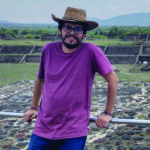 André Ramos Chacón
André Ramos Chacón
Department of Spanish and Portuguese
Morisco, Mestizo, and Indian Historians of the Spanish Empire: Identity and Writing in 16th Century Granada, Mexico, and Peru
André Ramos-Chacón (Cuzco, 1989) is a PhD candidate in Spanish. He studies 16th and 17th centuries Spanish-American literature, and 20th century Latin American literature focused on indigenous people and heritage languages.
André’s dissertation bridges 16th c. Spanish, Mexican, and Peruvian colonial studies through the analysis of post-conquest writing and identity in the Muslim Kingdom of Granada, the Indian Government of Tlaxcala, and the Inca State of Vilcabamba. He focuses on three authors: Miguel de Luna, Diego Muñoz Camargo, and Titu Cusi Yupanqui
André also studies Quechua, Nahuatl, and Latin, and favors interdisciplinary research through close reading, archival work, and second language acquisition studies (SLA).
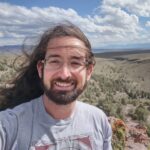 Alex Korsunsky
Alex Korsunsky
Department of Anthropology
Se Acostumbra Uno a Trabajar: Labor, Tradition, and the Limits of Food Sovereignty Aspirations among Mexican Immigrant Farmers in Western Oregon
Alex Korsunsky is a PhD candidate in Anthropology finishing a dissertation on Mexican immigrant farmers in Oregon’s Willamette Valley, where he grew up. His ethnographic research focuses on food justice, labor, and the complex factors that lead farmers to embrace conventional or alternative environmental practices. He is also a grant writer with CAPACES Leadership Institute’s Anahuac Farm, an indigenous migrant food sovereignty program based in Turner, Oregon. ”
 Maren Loveland
Maren Loveland
Department of English
Vital Infrastructures: The Affects, Power, and Environments of Infrastructural Media
Maren Loveland is a dual-PhD student in English and Comparative Media Analysis and Practice whose research focuses on the relationship between media, infrastructure, and the environment. She specializes in twentieth-century literature and film studies, documentary studies, energy humanities, and critical race theory.
 Nicholas Tyler Reich
Nicholas Tyler Reich
Doctoral Student, Department of English
Nick Reich (he/they) studies how racialized gender and sexuality undergird energy infrastructure, as represented in regional literature and media. Check out their latest article in the Transgender Studies Quarterly: “Truck Sluts, Petrosexual Countrysides, and Trashy Environmentalism.”
2021-2022 Thematic Graduate Student Fellows: Environments
 Madeline Allen
Madeline Allen
Civil and Environmental Engineering
Dissertation title: Flood Risk Assessment, Perception, and Communication in the Face of a Changing Climate
Madeline is a second semester PhD student in the Civil and Environmental Engineering Department and received her B.A. in Earth and Environmental Sciences from Vanderbilt University in 2019. She is currently exploring the ways humans interact with and alter the landscape through the built environment, with the hopes of tackling some of the critical issues at this interface. Her research focuses on studying the intricacies of how decisions are made by individuals in relation to their perception of flood risk, as well as developing a methodological framework to conduct comprehensive flood risk and resilience assessments at the community-level scale.
 Kaelee M. Belletto
Kaelee M. Belletto
Doctoral Student, Department of Sociology
Kaelee is a third year student in Sociology at Vanderbilt University. Her main research areas include health and environmental justice, with special focus on rural publics. Most recently, Kaelee’s work has focused on various aspects of the relationship between community-level social actors and the processes of energy transitions, fossil fuel opposition, and pollution remediation. Her project through the RPW Environments Graduate Fellowship will focus on water quality, industrial contamination, and remediation efforts in communities within the rural United States.
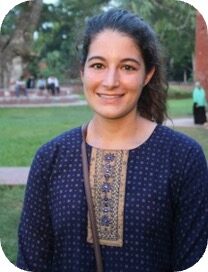 Kelsea Boehner Best
Kelsea Boehner Best
Earth and Environment Sciences
Dissertation title: Dynamics of Changing Landscapes, Livelihoods, and Migration in Bangladesh
Kelsea is a fifth year PhD candidate in Earth and Environmental Science at Vanderbilt University. Her dissertation work focuses on using quantitative methods including machine learning and agent-based modeling to study environmental and climate migration in coastal Bangladesh. She is also the PI of a Graduate Pursuit through the National Socio-Environmental Synthesis Center (SESYNC) which uses machine learning to study climate gentrification along the east coast of the United States. Broadly, she is interested in coupled human-natural systems, climate adaptation, and climate justice.
 Laura J Carter-Stone
Laura J Carter-Stone
Teaching, Learning, and Diversity
Laura Carter-Stone is a fourth year PhD student studying how the performing arts–especially the art of dramatic improvisation–can create emotionally engaging and collaborative language and literacy learning environments. Her career in education began while teaching public school students in rural settings where issues of social, educational, and environmental injustice are intertwined. One of her current projects explores how students and teachers might develop harmful ways of thinking about the natural world as they learn to read, write, and speak the English language, and the related importance of Indigenous languages learning and revitalization.
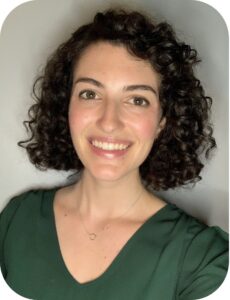
Sarah DiMaggio
Philosophy
Dissertation title: Rediscovering Kin: The Ethical Significance of Kinship with Nature
Sarah DiMaggio is currently a PhD Candidate in the Department of Philosophy at Vanderbilt. Her research interests lie primarily in environmental philosophy and ethics, as well as the intersection of these fields with feminist philosophy and phenomenology. She is currently working on a dissertation project that explores how recognizing the normative ethical force of kinship can transform the ways that we conceive of our relationships with—and, therefore, ethical obligations to—both other humans and non-human parts of nature.

Jennifer M Gutman
English
Dissertation title: End-Holocene Realism: Archiving Epochal Transition in the Contemporary Novel
Jennifer Gutman is a fifth-year, joint-Ph.D. candidate in English and Comparative Media Analysis & Practice (CMAP) specializing in contemporary Anglophone fiction, theory of the novel, and environmental humanities. Her dissertation explores how contemporary realist novels respond to the distinct forms of crisis, risk, and uncertainty that characterize life and loss at the onset of the Anthropocene. Jennifer’s article “Cyborg Storytelling: Virtual Embodiment in Jennifer Egan’s ‘Black Box’” is published in Critique: Studies in Contemporary Fiction.
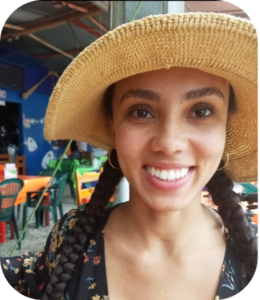
Djenanway Se-Gahon
English
Djenanway is a Seattle-born writer of Ivorian and Canadian descent. She received her MFA in creative nonfiction in 2019 from California College of the Arts. She is a third year Vanderbilt English PhD student. Her research interests include African American literature, Black Atlantic studies, plants, and water.
